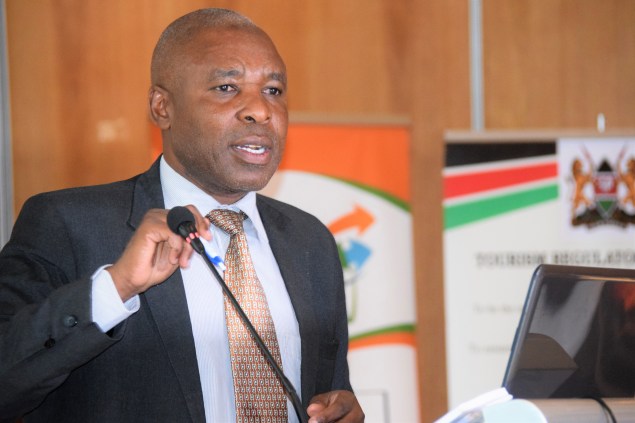Studies show that architecture has always played a fundamental role in tourism, especially the hotel industry. As the hospitality industry continues to prosper in this global economy, possessing competitive advantages in the hotel business could be the key to success as quality of accommodation and services primarily determine the choices of the modern tourist. There is an urge therefore for designers to transcend traditional design practices to create new innovative designs for hotel facilities.

In that light, the Architectural Association of Kenya is taking the front row in pushing the agenda for sustainable hospitality design among its members. On Wednesday 31st October 2018, the Association in partnership with the Tourism Regulation Authority, Tourism Finance Corporation and the UN Habitat, held a breakfast meeting at the Intercontinental Hotel to sensitize its members on the best hospitality architectural practices with a view of conforming to sustainable standards, project planning principles and financing.

Speaking at the breakfast meeting, the Tourism Finance Corporation MD, Mr. Orumoi Jonah remarked on the pivotal role that architects play towards tourism investment. Focusing on hotel design, he called for integration of research and sustainability standards in creating hospitality products that are tourist attractions in Kenya and building capacity on the existing facilities. “Kenya has only 68 global hotel brands which are mostly concentrated in the cities. We encourage building professionals to advise developers on the opportunities available in other parts of the country, for instance, Kajiado, Wajir, Meru and other places. Let’s create eco lodges, parks, monuments and other complementary facilities to hotels.” Mr. Orumoi said. He also emphasized on the importance of feasibility studies for hospitality developments in order to help the real estate sector make research led investments that drive the tourism industry.

In echoing the remarks of his counterpart, Tourism Regulatory Authority Director General, Mr. Kipkorir Lagat further urged the built environment professionals to engage investors in developments across the counties “The Authority is lobbying for quality and standard boutique hotels in every county designed to accommodate changing trends in future. The existing facilities require sustainable cost effective refurbishments that attract and serve modern clients.” explained Mr. Lagat.

An elaborate presentation by the Tourism Regulatory Authority Director of Standards & Quality, Mr. Fredrick Jack Omondi delved on the EAC classification standards criteria with a focus on key quality indicators for sustainable and competitive hospitality sector including legal compliance, accessibility, use of environmentally friendly materials and sustainable features such as renewable energy, water conservation and waste management.
Representing the Chief, Urban Energy Unit, UN Habitat Dr. Vincent Kitio, the KBRC Deputy Director, Mr. Adams Namayi spoke on energy and resource efficiency in buildings terming green building as the environmental responsibility of a building throughout its life. He urged designers to enhance ecological integrity and biodiversity in projects.

In her remarks, the AAK President, Architect Emma Miloyo Naicca expressed gratitude to all the stakeholders who were involved in the organisation of the event stating that the intersectoral partnerships is the growth trajectory for the Kenyan economy.
The forum was a wholesome evaluation of the sustainability of specific site needs to integrate considerations from the domain of land planning, appropriate site selection and site planning, design and operations. Sustainable tourism, including the sustainable use of energy and other resources in the hotel sector can only be successfully developed and pursued in close cooperation between all stakeholders involved, at the planning and design stage. Climate responsive architecture is key towards mainstreaming of energy and resource efficiency in building.
Profiles
The Tourism Regulatory Authority is a key stakeholder in regulation of the tourism sector entitled to development of regulations, standards and guidelines that are necessary in ensuring round quality service delivery in the sector.
The Tourism Finance Corporation (TFC) is a specialized Development Financial Institution (DFI) with the mandate of facilitating and providing affordable Development Funding for long-term investment in Kenya’s tourism industry. TFC is tasked by Vision 2030 to develop 65,000 by 2030. This goal will be achieved through credit funding to potential investors, rehabilitation and upgrading of existing lodging facilities and investing in new star rated hotels.












Thank you for this article. The event’s purpose was well documented as a department of research we are proud of it. Kindly put us on your mailing list so that we can followup on your future write ups.
You’re welcome sir, and your request is well noted.